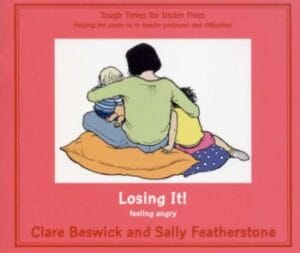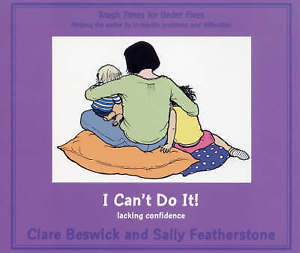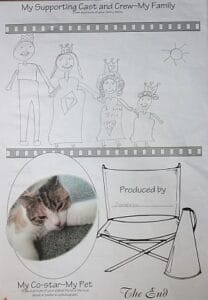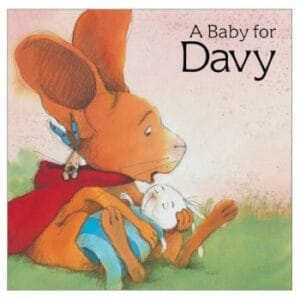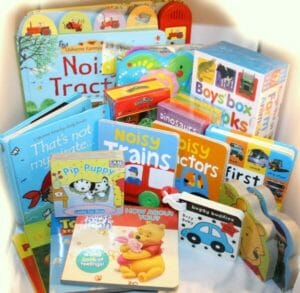How to Encourage our Children to Share their Feelings & Emotions

Isn’t it frustrating when our children exhibit certain emotions but they are unable to explain what they are feeling and why?
My kids are quite eager to share with me, more so my eldest than my youngest.
My youngest daughter doesn’t really say much and I have to probe quite a lot. Up until quite recently, she would have tantrums and get very angry but I couldn’t get her to listen or to speak to me. In turn, I would be getting angry and the situation would just escalate and we would never get to resolve it.
I thought that since she wouldn’t listen to me, I had to do something so I got two large pieces of paper. One said ‘listen’ and the other said ‘speak’.
For some reason, having a visual aid worked and I got her to calm down and listen to me as well as speak up! I kept them stuck to the fridge so they were at hand whenever I needed them.
I don’t need them anymore as she has really matured and will talk about how she feels. Have you had a similar experience?
Emotional skills begin developing in children from birth. Emotional skills include being able to recognise, express, understand and manage a wide range of feelings.
These skills are vital especially as children go through nursery and on to school. These skills help children to develop the ability to interact successfully with others and their physical world.
Children who can understand and manage their feelings and emotions are able to stay calm and enjoy their experiences. They are also more likely to develop a positive sense of self and be confident and curious learners.
Children develop their emotional skills through their relationships with important others, such as their parents and carers. Children develop more advanced emotional skills if they are supported with their increased language, thinking, planning and organising abilities.
What can we, as parents, do to help our children develop those essential emotional skills?
*Be a role model for your child – we all experience difficult feelings and emotions, but as adults, we have hopefully learnt to deal with them appropriately.
Our children need to see that it is a normal part of life to have these feelings and emotions. As parents, we can show them how we deal with our feelings and emotions so they learn how to deal with theirs.
*When your child is finding it hard to express or deal with a feeling or emotion, try to find out what’s bothering them and act accordingly. Keep calm!
*Talk about feelings and make it a normal part of your day – Use the names of different feelings and emotions so your child becomes familiar with them.
*Encourage your child to share positive and negative emotions and once you have dealt with them, move on to positive activities or conversations.
*Respond in a warm and caring way. If your child gets used to a warm and caring response, they are more likely to talk to you. If you get angry, they will learn to hold back.
*Remember that children are affected by the feelings, emotions behaviours, and interactions of others – it’s important to monitor your own well-being and ask for help and support when you need it. This would give you the energy to be there for your children by being able to display ‘feel good’ emotions such as happiness, joy, enthusiasm and excitement.
Here are some wonderful books that I think can be very helpful in creating an environment where children feel that they are able to talk about their different feelings and emotions.
Tough Times for Under Fives – I Can’t Do It! – Lacking confidence & Losing It! – Feeling angry
Although these two books have been written for early years practitioners, I think they are ideal for parents as they encourage doing the recommended activities on a one-to-one basis.
These books build on the principles, themes and good practice described in the EYFS framework and provides parents with practical ideas and tips to help very young children cope with tough times in their lives.
The activities use everyday objects so they are not difficult to set up and they are quick and easy to do. They also encourage children to express their feelings; there are plenty of ideas for taking activities further if needed.
What’s brilliant about these books is that they take into account the needs of babies and very young children so you can get started straight away!
A Baby for Davy
 If you are expecting your second child and are worried about how your first child might react to this, then this book is a great way to show your child that they can actually have a really good relationship with the new baby just like Davy does.
If you are expecting your second child and are worried about how your first child might react to this, then this book is a great way to show your child that they can actually have a really good relationship with the new baby just like Davy does.
In this lovely little book, Davy’s mother is having a baby; Davy is not happy about the idea of this but then quickly learns how important his role is as big brother!
There are beautiful illustrations and a great way to start a discussion with your little one about becoming a big brother or sister.
The Little Book of First Experiences
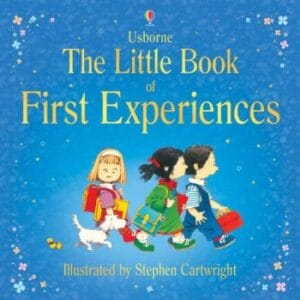
This little book contains stories of first experiences that are very helpful for when our children might be going to the hospital or doctors for the first time, or moving house, getting a new puppy or going on a plane. There are nine stories in this book in total.
The stories are written in an amusing and friendly way and are based on situations children might find themselves in for the first time.
The humorous illustrations are full of things for children to look at, learn from and talk about – great for you and your child and an opportunity for you to reassure them.
Words Are Not for Hurting
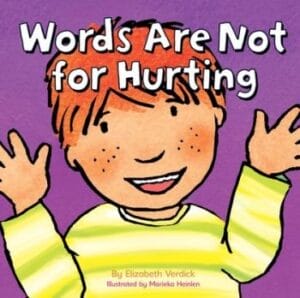
If your child has a habit of shouting out nasty words and using their words to upset others, this book is good way to let them see how their words might be hurting other.
What I also like about this book is that it tells children what they can do if they feel like using bad words and that it’s ok to say sorry.
This book uses simple, rhythmic words and lovely colourful illustrations that will keep your child’s attention. It’s a perfect starting point to show young children how to develop good relationships by exploring and managing feelings in a positive way.
Hands Are Not for Hitting
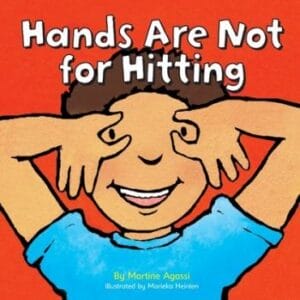
I will be the first to admit that my children have hit each other a few times and sometimes, they can get quite violent.
Temptation is sometimes to sit back and see which one survives!
But of course, we can’t do that and it’s a good idea to teach them that violence does not solve your problems. This book does exactly that.
Your child will learn that hands can do lots of things but it’s never too early to learn that they’re not for hitting!
Feeling Scared
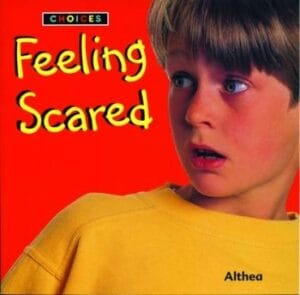
Does your child have a fear? My lot are scared of everything! Maybe not everything but sometimes it feels like they do.
My youngest is so scared of insects; I swear she nearly threw herself out the car window when she saw a minute spider in the car while I was driving!
All of us have felt scared at some time in our lives and we all show it in different ways.
In this book, children talk about the different things that make them feel scared and how they have learnt to cope with feeling frightened.
Perhaps our children could use some of these coping strategies!
A Nifflenoo Called Nevermind
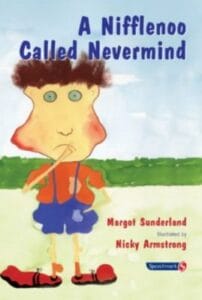
What a strange looking book! But do not judge this book by its cover.
This story is about a Nifflenoo called Nevermind who suppresses all his negative emotions, he pushes them further and further down inside him until he is huge and about to explode.
However, a kind friend helps him deal with all that built up sadness, anger and frustration in a healthy way.
This is a really touching story and you can really feel Nevermind’s pain as you read about his daily troubles.
I would really recommend this book as a way of getting your child to think about how to deal with negative emotions.
A Wibble Called Bipley (and a few honks)
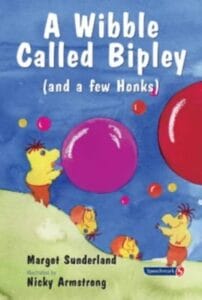
Bipley is a Wibble, very soft and gentle, but when someone hurts him one day, he feels an awful pain and decides to become a Honk.
A Honk is tough and nasty. But Bipley soon realises that being tough and nasty meant that he was lonely and sad.
He had put up a wall so big that he was shutting everyone out of his life. He soon realises that he only needs a little wall to block out the people that are nasty to him and still be able to open up his heart to those that truly love him.
This book is great for tackling different emotions and feelings. This is also a great book to help your child talk about bullying and how to deal with bullies.
A Pea Called Mildred
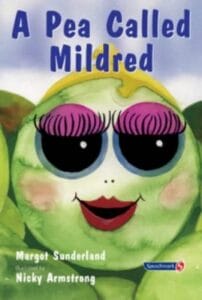
Mildred, who is an ordinary looking pea, is fed up of being the same as every other pea. She wanted to be different so she decided to jump out a lorry, taking her destiny into her own hands.
She soon realises she is all alone and starts to regret her decision until she meets some sweet peas, all of different colours. They convince Mildred that she could be different too… on the inside!
She thought about this and decided that she didn’t want to end up in someone’s soup or salad but to run her own tea shop!
She met a man who saw her drawing of her dream tea shop and offered to help her build it. Mildred’s dream had come true! She became successful, all because she dared to be different!
A great motivational story to get your child to really think outside of the box and be different. This story will help your child learn that there’s nothing wrong with wanting something different. They do not have to be like everyone else!
Wilbie’s Gift
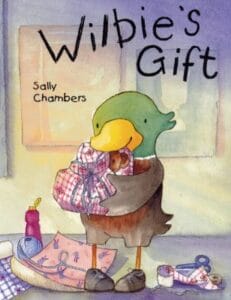
This story explores feeling of anger, disappointment, sadness and joy. What an array of feelings!!
Wilbie really wants a pair of new trainers but he can’t have them because his parents are saving for the new baby.
Wilbie experiences such a mixture of emotions which I’m sure a lot of children who are expecting a new sibling will feel. Parents could use this story to help them work through what their child might be feeling and show them that Wilbie was fine and he got his trainers, so they will be fine too. Would recommend this book to anyone as it’s a really heart-warming story.
I hope that these books are useful to you and your children. If you have read any of them, please drop a comment and let us know what you thought.
Join our mailing list
Sign up to our Emailing List & Get the Latest Information and Offers on Resources
Thank you for joining !
Something went wrong.

